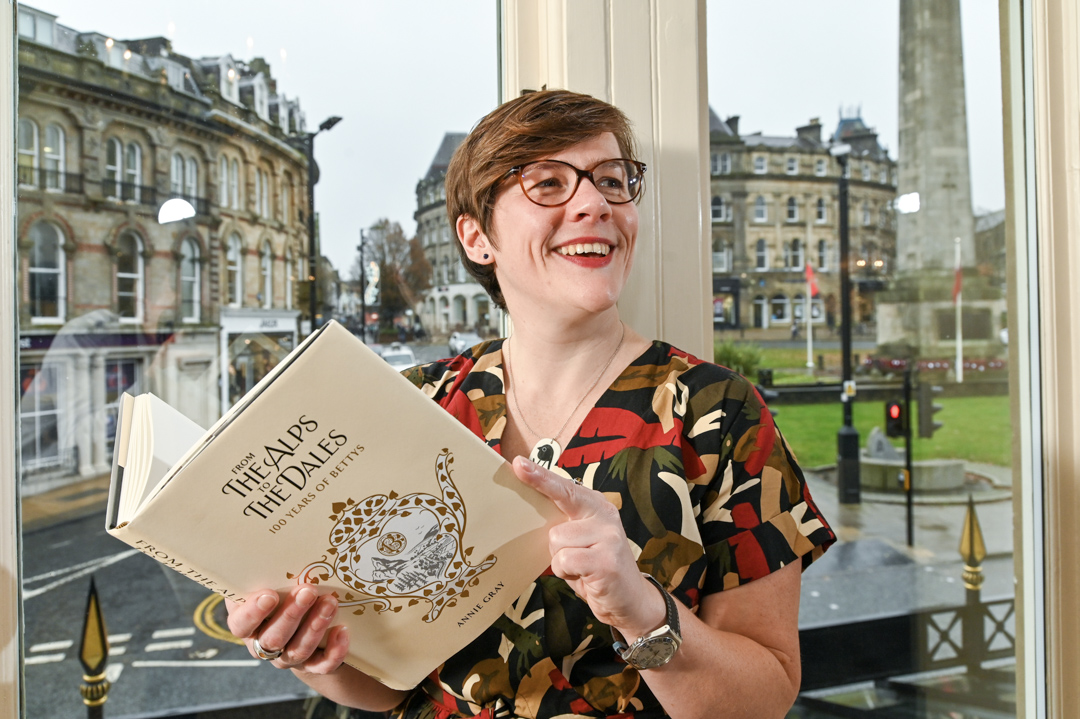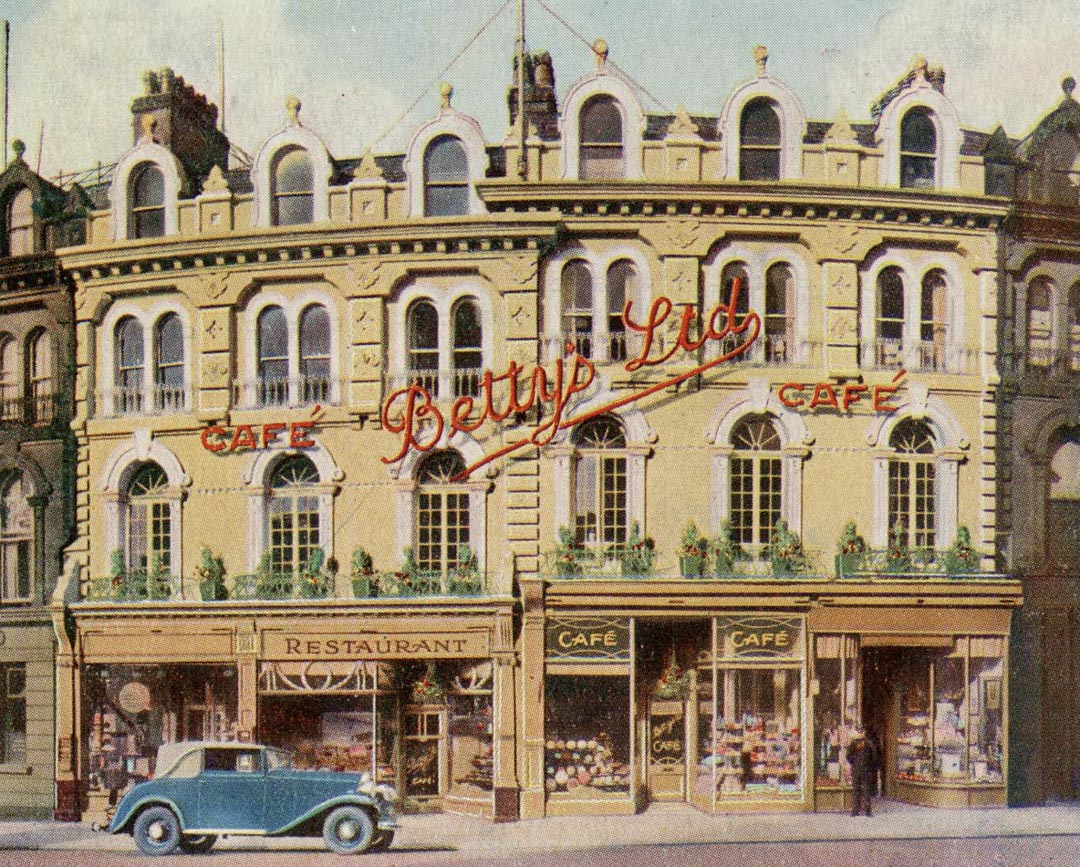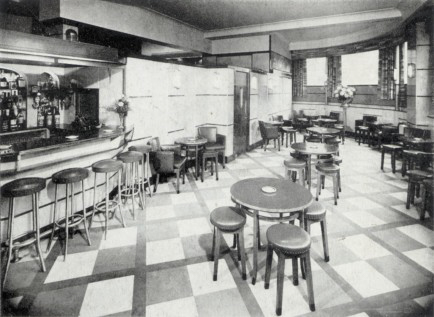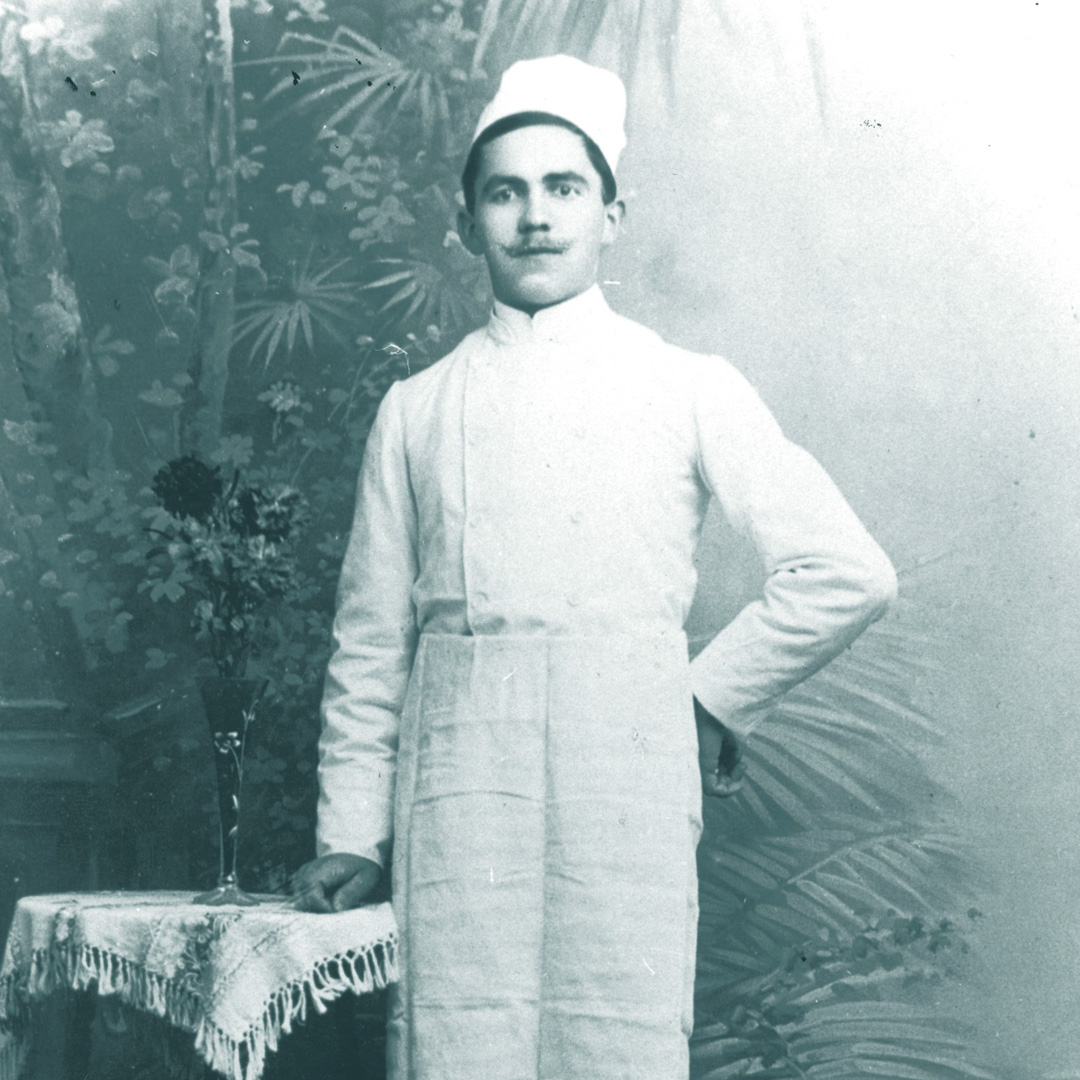101 years of comfort through cake

Annie Gray, author of ‘From the Alps to the Dales’ shares her reflections on how our specialities and service have provided nourishment and joy in difficult times across our 100-year history.
In July 1919, after years of dreaming and planning, Swiss immigrant Fritz Bützer opened an elegant new café and tea rooms in Harrogate. It was not an auspicious time: the Great War had been over for less than a year, rationing was still in force, and it was a mere two months since the third wave of Spanish flu had been declared over in Europe. Harrogate, for over a century the playground of the wealthy, was only slowly regaining its pre-war lustre. But Fritz had a vision: to provide high quality catering and confectionery, and a space in which to consume them. He sought to make his fortune, but also to build a business which would help his adopted town get back on its feet.
Bettys, the business he founded, has shared the same ups and downs as its owners, staff and customers. When it first opened, it was billed as ‘the exclusive café’, an early advert promising ‘good cooking’ and quietly harmonious surroundings in which ‘we can meet our friends and discuss things’.

Food and drink have long been sources of comfort, their purchase and consumption tied up with concepts of personal identity, memory, and simple desire. In 1919, many of those who chose chocolates from the mirrored cabinets of the Bettys shop, or climbed the stairs to sit in the tea rooms, resplendent in grey, pink and silver, were still in shock. Whether mourning the lost, or simply adjusting to the new post-War society, the Yorkshire curd tarts, cream sponges and potted beefsteaks on offer were a reminder that life goes on, and that pleasure can be found in small things.
Life did, indeed, go on, and Bettys became the reliable provider of foods to mark out both the everyday and the extraordinary in the lives of those who perused its sales catalogues or ever more exciting shop windows. From pre-theatre suppers to lunches for ladies, and from petits fours for a special dinner party to extravagant novelty cakes, its carefully crafted offerings were something people would look forward to, and then look back upon in times of individual stress or sadness.
During the Second World War, with rationing in force, food took on a renewed importance for everyone. Few things were plentiful, and even fewer things had flavour. Diaries of the time are full of food, be it longing for an orange, or crushing disappointment when the only egg obtainable for two weeks is rotten. Restaurants were also restricted, their dishes made from what was obtainable by law from suppliers, supplemented by purchases or gifts of unrationed foods such as game, or home-grown produce.
Bettys had expanded, with branches in Leeds, Bradford and York. In York, a valuable alcohol license helped the whole business to survive. The basement bar, ‘The Dive’ served up liquid comfort to hundreds of American and Canadian airmen, stationed around York, many of whom left their names engraved in diamond pencil on the mirror.

Upstairs, the cooks did what they could with spam and corned beef, and the unedifying looking ‘fish mix’, a slurry of offcuts and fish offal, but which could be made into a reasonable fishcake. Ice cream was banned, and cake-making was challenging. But the cafés were packed with civilians and uniformed men and women seeking both a release from the fatigue and worry of wartime life, and a good meal at a reasonable price.
Rationing remained in force for nine years after the War ended. By the 1960s Britain, infamously, had ‘never had it so good’. Then came the 1970s, the oil crisis, industrial unrest on a massive scale, and a financial collapse. In 1974 businesses were restricted to three days’ worth of electricity a week. Most closed on the remaining days.
Amidst deepening gloom and rampant inflation, food once more proved a comfort. The British remained deeply conservative in their tastes – prawn cocktail, steak and chips, and an ice cream was the dream meal of many – and Bettys stayed open, lit with candles on the days with no electricity, serving omelettes and peach melba to a population in search of stability.

We once more face uncertain times, the threat of illness, recession and global instability all very real. In lockdown flour sales have boomed, as we turned to home baking as displacement and comfort. Small bakeries and other high street food businesses have gained new customers, both in person and online, as we rediscover the small joys hidden in a fruited bun, or a tasty artisan cheese. We’ve redefined our notions of what – and who – is essential and started to recognise that the people who grow, make and package our food are vital to our physical and mental wellbeing.
In March 2020 the Bettys branches closed, to reopen only when safe, for both staff and customers. But, just as Bettys survived depression, recession and war in the past, it has kept cooking in the face of present challenges. Bettys' mail order service continues to send rascals and chocolates, teas and tarts, to people seeking solace, if only for a few minutes, over a cake and a cup of tea.
Liked this? We have a whole, glorious book about the history of Bettys and the changing face of the high street. Lavishly illustrated and packed with stories of our eventful past, you can order it online here and we'll deliver it to you

